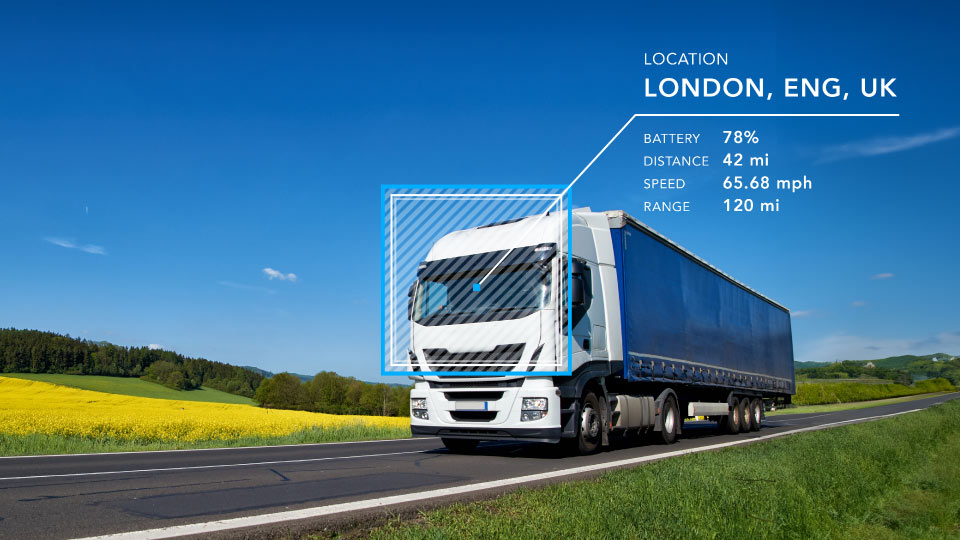What sustainability means and why it matters
The triple bottom line for business includes profit, people and the planet.

Sustainability is often thought of in terms of the environment, but it’s much more than that. Discover the history of the concept, how businesses are adapting their strategies and how Geotab can help customers reach their sustainability goals.
The origin of sustainability
Sustainability has its roots in the field of ecology. The term was coined during the Industrial Revolution, when factories began to negatively impact surrounding ecosystems. The concept of sustainability, however, can be applied to a wider range of concerns, including social and economic affairs.
The United Nations (UN) defines sustainable development as “meeting the needs of the present without compromising the ability of future generations to meet their own needs.” This definition primarily emphasises the responsible use of the resources that are available to us today, so that we do not live in such a way that costs future generations.
What sustainability means in business
In a business context, the idea of sustainability is often phrased as the ESG (Environmental, Social, Governance) criteria or a business triple bottom line, also known as the three Ps: people, planet and profit. This extends the concept of sustainability beyond environmental concerns alone.
See also: Is sustainability good for business? Yes!
The 17 UN Sustainable Development Goals
In 2015, the UN created a roadmap called the Sustainable Development Goals (SDGs) to communicate the global importance of sustainability. This blueprint consists of 17 goals which tackle the most pressing challenges that we face in the 21st century, such as:
- Sustainability cities and communities
- Responsible consumption and production
- Climate action
- Reduced inequalities
The UN aims to achieve these goals by 2030, which is why the SDGs are also called “Agenda 2030.” The SDGs are a global compass for sustainable development, used by organisations to establish or validate their own sustainability strategies.

A shared responsibility
To keep on track towards achieving these goals, all countries need to contribute, which is why many legislations have sharpened their focus on sustainability. However, companies are not only adapting due to legal requirements but also because they are realising the financial benefits that come with implementing sustainability strategies.
While sustainability does require an initial investment, there is great potential in identifying cost-cutting options, for instance, by improving operational efficiency. Large corporations, such as Nike, Ikea, or Unilever, have committed to long-term sustainability strategies within their core business.
Sustainability can offer companies a competitive advantage among consumers and stakeholders, who are increasingly demanding social and environmental engagement from businesses.
Occasionally, companies make headlines for propagating false sustainability claims, also known as “greenwashing.” To avoid such risk, transparency is essential when including sustainability into your business practices. This can be achieved by collecting, analysing and reporting data based on scientific evidence. Find out how companies are taking action and focusing on meeting science-based targets.
How Geotab supports your fleet sustainability journey
Geotab aims to support customers on their sustainability journeys, with the motto: you cannot manage what you do not measure. As mentioned, data transparency is an essential element in sustainability strategies and Geotab’s solutions allow customers to view actionable insights based on their own data.
There are several ways in which Geotab can help you tackle your sustainability goals:
Eco-friendly driving
Geotab’s solutions help customers with tracking their fleet data according to environmental variables. A crucial element here is the reduction of CO2 emissions by monitoring and improving driving techniques.
With the help of the Green Fleet Dashboard, a free Add-In available on the Geotab Marketplace, customers can track their fleet in relation to environmental variables and adjust driving behavior accordingly. Small tweaks in one’s driving practices can have a large impact on fuel savings and therefore emissions. Practicing fuel-efficient driving techniques can also lead to reduced costs.
Read more about using the Geotab Green Fleet Dashboard.
Supporting EVs
Another way to reduce overall emissions is to switch to electric vehicles (EVs). Geotab supports customers on their EV journey right from the beginning. Geotab offers the opportunity of the EV Suitability Assessment (EVSA) which helps fleets decide whether EVs would be suitable for their organization.
Geotab now offers EV support for over 100 models, and we expect this to expand this support for up to 600 models by 2025. Read more about fleet Geotab’s EV fleet management solutions.
Increasing road safety
While fatal collisions are decreasing on European roads, there is still room for improvement. Common causes include time constraints, exhaustion or distractions. Geotab is committed to addressing social sustainability as well by promoting safer roads through several options within its solutions. For instance, fleet managers can proactively improve driver safety with the Geotab GO TALK, which allows to coach drivers while driving.
Camera solutions can help capture real-world examples of good or risky behaviors, and offer real-time feedback to drivers. Another option is to set up safety alerts or create driver safety reports to monitor overall safety trends. Learn about other ways to increase your fleet safety.
Designing smart cities
Rich datasets allow municipalities to gain critical insights on local transportation systems and their environmental impact. Challenges relating to traffic, road safety, air quality or other environmental concerns can be tackled with the help of Geotab’s smart city solutions.
To learn more about improving your fleet’s performance on sustainability goals with Geotab, visit our Fleet Sustainability page.
Subscribe to the Geotab Blog
The Geotab Team write about company news.
Table of contents
Subscribe to the Geotab Blog
Related posts

Strategic Implementation of Telematics for Optimising Last-Mile Delivery Operations
April 1, 2025
2 minute read
.jpg)
Lead with Trust: How Geotab Helps Businesses Navigate CSRD Compliance
March 19, 2025
2 minute read

Data-Driven Innovations in Fleet Management: highlights from Geotab Mobility Connect 2024
November 28, 2024
3 minute read

2030 or 2035, the UK Needs Meaningful Action on EVs Now
September 6, 2024
2 minute read

Driving smarter: Insights from Geotab’s “Taking Charge” Report
August 8, 2024
2 minute read

The art of the possible: Insights from Geotab’s “Taking Charge” Report
June 20, 2024
3 minute read
